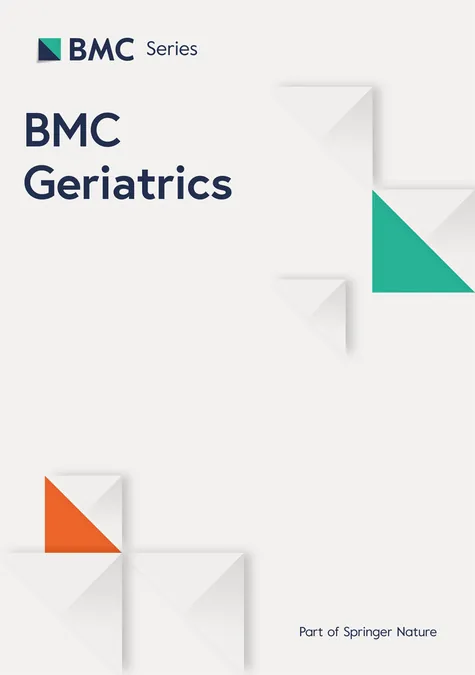
Unlocking the Secrets of Aging: How Attitudes, Depression, and Death Anxiety Intertwine Among Seniors
2025-07-02
Author: Rajesh
Understanding Aging: A Complex Journey
Aging isn’t just a chronological process—it’s a transformative journey beginning at birth and culminating in our final days. It's a time marked by unavoidable changes impacting physical, mental, and social functionality.
Cultural Perspectives: The Good, The Bad, and The Aging
Our perception of aging is significantly shaped by cultural norms. Societies that harbor negative stereotypes about aging can inadvertently instill feelings of inadequacy in individuals, affecting their emotional and cognitive well-being as they age.
The Vicious Cycle of Negative Aging Attitudes
When older individuals internalize societal negativity around aging, it can lead to physical frailty, diminished self-care, feelings of loneliness, and even depression. This can create a self-fulfilling prophecy, wherein societal expectations dictate personal realities.
The Emotional Toll of Aging: Loneliness, Depression, and Death Anxiety
Aging comes with its share of emotional burdens. Depression often rears its head due to health degradation, reduced productivity, and social isolation, while death anxiety—stemming from the proximity of life’s end—can loom even larger.
Death Anxiety: Fear of the Inevitable
A troubling aspect of aging, death anxiety is an ingrained fear many older adults face. Research indicates a direct correlation between depression symptoms and heightened death anxiety, with negative emotions exacerbating these fears.
The Role of Culture: A Double-Edged Sword
In collectivist cultures like Turkey, aging is often seen as honorable, marked by respect and familial support. Yet, modernization can erode these values, leading to increased isolation and psychological distress as older adults lose their vital social roles.
Research Gaps: Insights into Older Adults’ Attitudes
While studies have scrutinized younger generations’ views on aging, there’s a dearth of research focused on older adults themselves. Understanding their perspectives is essential to combatting prevalent issues like depression and death anxiety.
The Study: What Did Researchers Discover?
A recent investigation involving 400 community-dwelling seniors in Turkey aimed to assess their attitudes toward aging, depression levels, and death anxiety. The findings painted a sobering picture: many experienced significant depressive symptoms and death anxiety.
Statistical Insights: Aging, Depression, and Death Anxiety Connections
Results indicated that seniors' attitudes toward aging and their depression levels are key predictors of death anxiety. As negative attitudes towards aging rise, so too does anxiety surrounding death.
Implications for Nursing and Health Care
Nurses and healthcare providers have a crucial role to play in addressing these issues. Regular assessments of mental health, combined with educational interventions, can help improve the quality of life for older adults.
Conclusion: Embracing Aging with Positivity
To counter the negatives surrounding aging, society must work towards fostering positive attitudes and creating supportive environments. Effective policies and community programs are vital in reshaping perceptions and improving the lives of older adults.
A Call to Action: The Future of Aging Care
Further research into the personal narratives of older adults will deepen our understanding of aging. Together, let’s challenge stereotypes, enhance mental health care, and ensure a dignified, empowering aging process for all.





 Brasil (PT)
Brasil (PT)
 Canada (EN)
Canada (EN)
 Chile (ES)
Chile (ES)
 Česko (CS)
Česko (CS)
 대한민국 (KO)
대한민국 (KO)
 España (ES)
España (ES)
 France (FR)
France (FR)
 Hong Kong (EN)
Hong Kong (EN)
 Italia (IT)
Italia (IT)
 日本 (JA)
日本 (JA)
 Magyarország (HU)
Magyarország (HU)
 Norge (NO)
Norge (NO)
 Polska (PL)
Polska (PL)
 Schweiz (DE)
Schweiz (DE)
 Singapore (EN)
Singapore (EN)
 Sverige (SV)
Sverige (SV)
 Suomi (FI)
Suomi (FI)
 Türkiye (TR)
Türkiye (TR)
 الإمارات العربية المتحدة (AR)
الإمارات العربية المتحدة (AR)